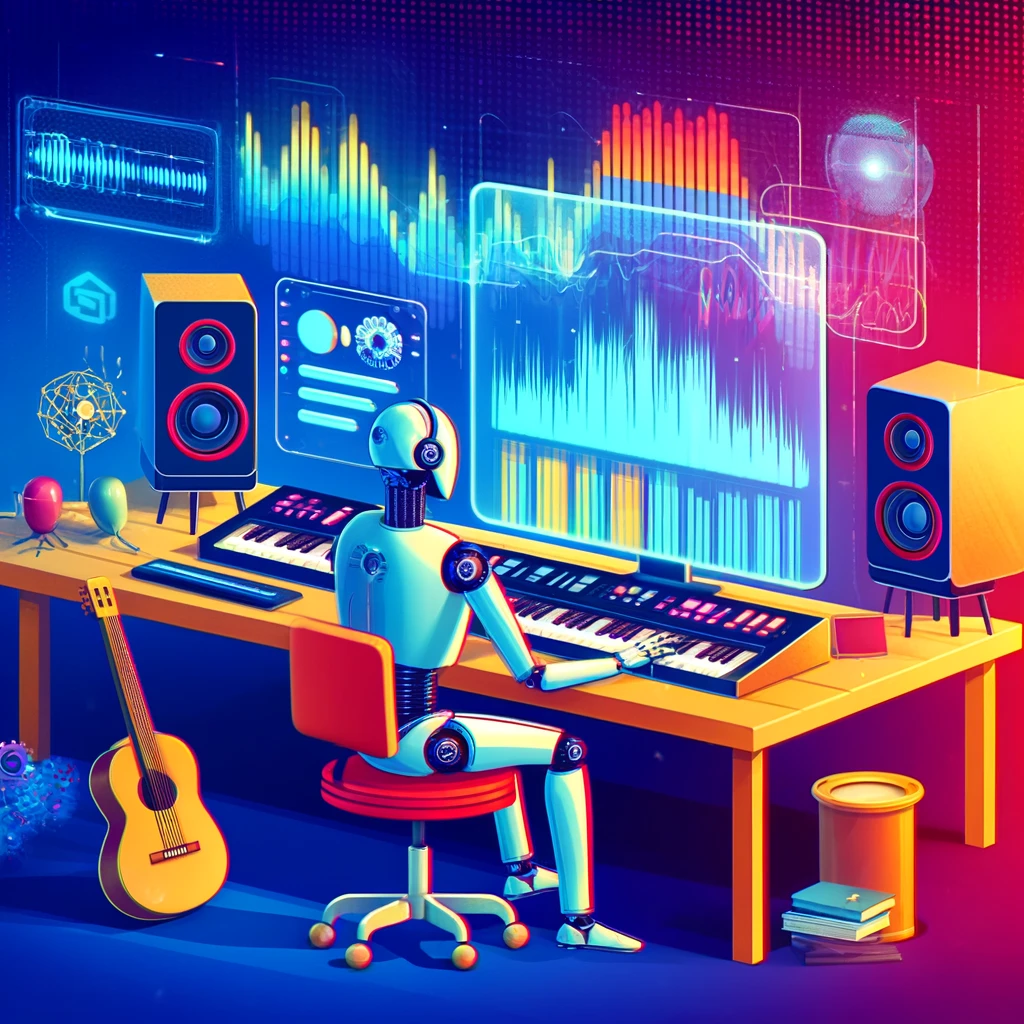Introduction
Advertising jingles have been a staple of marketing for decades, acting as powerful earworms that can define a brand’s identity and enhance consumer recall. With the advent of artificial intelligence (AI), the landscape of musical marketing is undergoing a significant transformation. This article explores how AI technologies are revolutionizing the creation of advertising jingles, and examines their impact on consumer recall and brand loyalty.
The Evolution of Advertising Jingles
Traditionally, advertising jingles have been short, catchy tunes composed by musicians with the aim of making a brand memorable. These jingles often become synonymous with the brand, reinforcing its message and identity in just a few seconds of audio. For example, the famous McDonald’s “I’m Lovin’ It” or State Farm’s “Like a Good Neighbor, State Farm is There” are iconic jingles that have effectively embedded themselves in the minds of consumers.
The Advent of AI in Musical Marketing
In recent years, AI has started to play a crucial role in the music industry, not only in music production and composition but also in marketing applications. AI technologies are now being used to create advertising jingles that are not only catchy but are also tailored to specific audiences and marketing objectives. AI can analyze vast amounts of data regarding consumer preferences, brand perceptions, and even emotional responses to different musical elements to create highly effective jingles.
AI-Generated Jingles: How It Works
AI-driven systems like Amper Music, AIVA, and Jukedeck are capable of composing original music that caters to specific emotional or psychological marketing needs. Here’s how the process typically works:
- Input Stage: Marketers input parameters related to the brand’s identity, campaign goals, and target demographic.
- Analysis Stage: AI algorithms analyze existing data on music performance and consumer behavior to identify patterns.
- Composition Stage: Using the insights gained, the AI composes a variety of jingles that align with the identified patterns and marketing objectives.
- Review and Refinement Stage: Marketers review these AI-generated jingles and select the one that best meets their needs, which can then be refined further.
Impact on Consumer Recall
AI-generated jingles are crafted based on algorithms that predict what melodies, rhythms, and tempos are most likely to resonate with a target audience, thereby enhancing recall. These jingles can be tested across different segments in real-time, allowing marketers to choose the version that performs best in terms of memorability and engagement.
Enhancing Brand Loyalty
Brand loyalty is deeply connected to emotional engagement. AI-generated music can be optimized to evoke specific emotions that are likely to enhance brand loyalty. For example, an AI could compose a jingle that evokes a sense of security and trust for a financial services brand or one that exudes excitement and energy for a sports brand.
Case Studies
- Coca-Cola: Coca-Cola used AI to create a dynamic jingle that could be adapted to different languages and regional cultures, maintaining the core musical elements that align with its brand identity while resonating locally.
- Unilever: Unilever employed AI to analyze the effectiveness of its jingles across different consumer groups, allowing for more targeted and effective advertising campaigns.
Challenges and Ethical Considerations
Despite the advantages, AI in jingle production also presents challenges. The lack of human touch and the over-reliance on algorithms can lead to jingles that may lack depth or fail to connect on a human level. Additionally, ethical concerns arise regarding the originality and copyright of AI-generated music.
Conclusion
The use of AI in creating advertising jingles represents a significant shift in musical marketing. While it offers new opportunities for targeting and customization, it also raises questions about creativity and emotional connection. As AI technologies continue to evolve, their role in marketing will undoubtedly expand, potentially changing the way brands think about and implement musical strategies to engage consumers. The future of advertising jingles lies in balancing technology and human creativity to craft memorable and effective marketing messages.

No responses yet